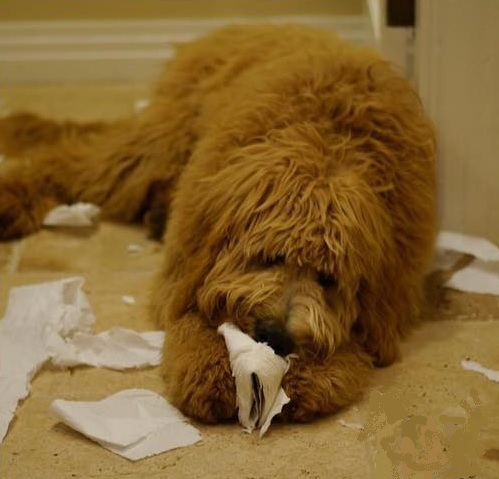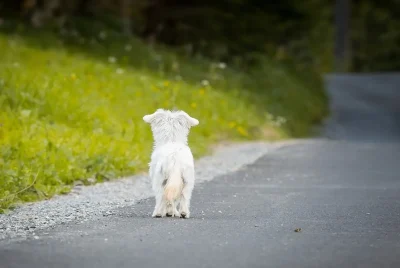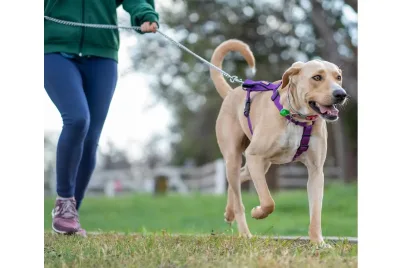Why Do Dogs Eat Everything? Understanding the mystery
Introduction
“Why do dogs eat everything?” As a dog parent and enthusiast, I understand the frustration of dealing with this mystery. From household items to random objects during walks, some dogs have an insatiable appetite for chewing and swallowing objects. This behavior can be dangerous and worrying to a dog parent. In this article I will share my insights and provide helpful suggestions on how to stop your dog from eating everything. Let’s explore the reasons behind this behavior and effective strategies to prevent it.
Understanding the Behavior of Why Do Dogs Eat Everything
Understanding the behavior behind, Why Do Dogs Eat Everything, by exploring our dogs needs for: a balanced diet, an established feeding routine, management of food temptations, training and the use of distraction techniques, addressing any underlying behavioral issues, supplying our dogs with appropriate chew toys, providing supervision and reinforcement, and seeking professional help if needed, we can effectively curb the undesirable behavior of our dogs eating everything.
Dogs have a natural instinct to explore their environment through their mouths. Puppies, in particular, go through a teething phase where chewing helps soothe their gums. However, if this behavior persists into adulthood, it can be a problem. Dogs may chew and eat objects out of boredom, anxiety, stress, or even due to nutritional deficiencies. By identifying the underlying causes, you can take appropriate steps to prevent your dog from engaging in this behavior.
Providing a Balanced Diet
One of the primary reasons dogs may eat everything is due to nutritional deficiencies in their diet. If their diet lacks essential nutrients, they may be instinctively driven to seek those nutrients from alternative sources. Ensure your dog is receiving a balanced and complete diet that meets their specific needs. Consult with a veterinarian to determine if any dietary adjustments are necessary based on your dog’s breed, age, size, and health conditions. A well-nourished dog is less likely to engage in destructive chewing behavior.
Establishing a Feeding Routine
Creating a structured feeding routine can help regulate your dog’s eating habits and reduce their tendency to scavenge for food elsewhere.
Scheduled Meal Times:
Establish set meal times for your dog and stick to them. This will create a predictable routine and discourage them from seeking food at other times.
Controlled Portions:
Measure your dog’s food and divide it into appropriate portions for each meal. Avoid free-feeding, as it can lead to overeating and increased scavenging behavior.
Managing Food Temptations
To prevent your dog from accessing food they shouldn’t eat, it’s important to manage food temptations in your home.
Securing Trash Cans and Food Storage:
Keep your trash cans securely closed and out of your dog’s reach. Invest in dog-proof containers for storing food, treats, and other edible items.
Keeping Countertops and Surfaces Clean:
Ensure all food is safely stored away, and regularly clean your countertops and surfaces to remove any lingering food smells. This will minimize the temptation for your dog to scavenge.
Training and Distraction Techniques
Training your dog with appropriate commands and providing suitable distractions can redirect their focus away from destructive chewing.
Teaching “Leave It” and “Drop It” Commands:
Train your dog to respond to commands like “leave it” and “drop it.” This will help you redirect their attention when they show interest in something they shouldn’t eat.
Using Puzzle Toys and Treat Dispensers:
Provide your dog with interactive toys and treat dispensers that keep them mentally stimulated. These toys will occupy their time and satisfy their urge to chew.
Addressing Underlying Behavioral Issues
If your dog’s chewing behavior persists despite implementing preventive measures, it may be due to underlying behavioral issues.
Boredom and Lack of Mental Stimulation:
Dogs need mental and physical stimulation to stay content. When they don’t receive adequate exercise or mental enrichment, they may resort to exploring objects, chewing and eating things out of boredom. Increase your dog’s exercise routine, provide stimulating toys, and engage in interactive play sessions to alleviate their boredom.
Anxiety and Stress:
Anxiety or stress can lead dogs to engage in destructive behaviors, including chewing and or eating non-edible objects. Dogs may resort to this behavior as a way to self-soothe or cope with their anxiety. Identify and address the triggers causing anxiety, and consider using calming techniques or seeking assistance from a professional dog behaviorist.
Potential Dangers of Dogs Eating Everything
Allowing your dog to continue eating everything can pose various dangers to their health. Some potential risks include:
Gastrointestinal Blockages:
Swallowing objects that cannot be digested can ead to blockages in the digestive system, which may require surgical intervention.
Toxicity:
Consuming certain objects, plants, or substances can be toxic to dogs and cause severe health issues.
Injuries:
Chewing and swallowing sharp objects or items with rough edges can result in mouth and throat injuries.
Tips to Stop Your Dog from Eating Everything
Now that we understand the reasons behind this behavior, let’s explore effective strategies to prevent your dog from eating everything:
Providing Appropriate Chew Toys
Satisfy your dog’s natural chewing instincts by offering a variety of safe and durable chew toys. Choose toys made of sturdy materials, specifically designed for dogs, and avoid items that resemble household objects to prevent confusion.
Supervision and Reinforcement
Maintaining close supervision of your dog and reinforcing positive behavior are essential in curbing their tendency to eat everything.
Keeping a Watchful Eye: When you’re unable to supervise your dog closely, confine them to a safe area or crate to prevent access to objects they may chew on.
Rewarding Desired Behavior: Whenever your dog exhibits appropriate chewing behavior or ignores forbidden items, praise and reward them with treats or verbal affirmation. Rewarding them with treats, praise, and play when they make the right choices will reinforce good habits.
Seeking Professional Help
If your dog’s chewing behavior persists or escalates despite your efforts, consider seeking professional help from a qualified dog trainer or behaviorist. They can provide personalized guidance and develop a training plan tailored to your dog’s specific needs.
Conclusion
Dealing with a dog that constantly eats everything can be challenging, but with patience, consistency, and the implementation of preventive measures, you can successfully address this behavior. Remember to understand the underlying causes, provide a balanced diet, establish a feeding routine, manage food temptations, use training and distraction techniques, address any underlying behavioral issues, provide appropriate chew toys, practice supervision and reinforcement, and seek professional help if needed. By taking these steps, you can ensure a healthier and happier life for both you and your furry companion.
FAQs
1. Q: Is it normal for dogs to eat everything?
A: Dogs have a natural inclination to explore the world through their mouths, but excessive chewing and eating non-food items can be a problem. It’s important to address this behavior to prevent potential health issues and risks.
2. Q: Can a nutritional deficiency cause dogs to eat non-food items?
A: Yes, nutritional deficiencies can contribute to a dog’s desire to eat non-food items. Providing a balanced diet and consulting with a veterinarian can help address this issue.
3. Q: How long does it take to stop a dog from eating everything?
A: The time it takes to stop a dog from eating everything can vary depending on the dog and the underlying causes of the behavior. Consistency, training, and management techniques are key factors in achieving success.
4. Q: Are there any specific chew toys that can help redirect a dog’s chewing behavior?
A: Yes, there are various chew toys available that are designed to satisfy a dog’s chewing needs. Look for toys made of durable materials, such as rubber or nylon, that are safe for dogs to chew on.
5. Q: Should I punish my dog for chewing on non-food items?
A: It’s not recommended to punish your dog for chewing on non-food items. Instead, focus on positive reinforcement and redirecting their attention to appropriate chew toys or other activities.




